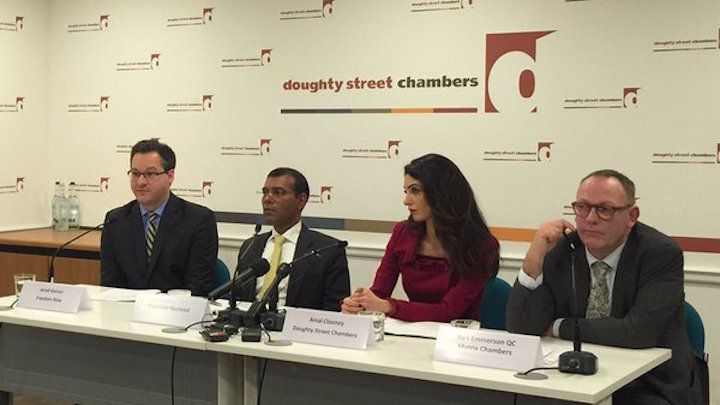Duplicitous attacks on the Maldives
In an op-ed for the Washington Times, President Abdulla Yameen accused former President Mohamed Nasheed and his heavyweight international lawyers of “trash-talking the Maldives” and attempting to portray the country as “a banana republic.”

10 Feb 2016, 9:00 AM
It is a compelling tale. A longtime political activist leads his party to victory in a closely fought election in a country famed for its pristine archipelagos and on the front of the war against climate change. There is no doubt that Mohamed Nasheed, the former president of the Maldives, was adept at using the international media to promote his agenda while in government. He employed a series of American and British spin doctors stationed in his office and even commissioned a documentary about himself. If there was an encapsulation of a media-savvy politician, he is it. Sadly, he now finds himself in more trying circumstances.
Mr. Nasheed has been charged and convicted in the Maldives for ordering the arrest of a senior criminal court judge — a man who had released one of his most vociferous critics. He also padlocked the Supreme Court gates. It was an act that precipitated three months of protests that eventually led to the downfall of his government.
Last month, Mr. Nasheed was again thrust into the spotlight. This time it was not his underwater Cabinet meeting but rather his temporary release from prison that set the world’s media alight — a release that was granted by the Maldivian government so he could undergo surgery in the United Kingdom.
What followed was a carefully scripted and tightly controlled media campaign in London, spearheaded by Mr. Nasheed’s lawyer, Amal Clooney. Mr. Nasheed’s back ailment was remarkably absent, his medical leave taking on a rather different dimension.
Become a member
Get full access to our archive and personalise your experience.
Already a member?
Discussion
No comments yet. Be the first to share your thoughts!
No comments yet. Be the first to join the conversation!
Join the Conversation
Sign in to share your thoughts under an alias and take part in the discussion. Independent journalism thrives on open, respectful debate — your voice matters.




